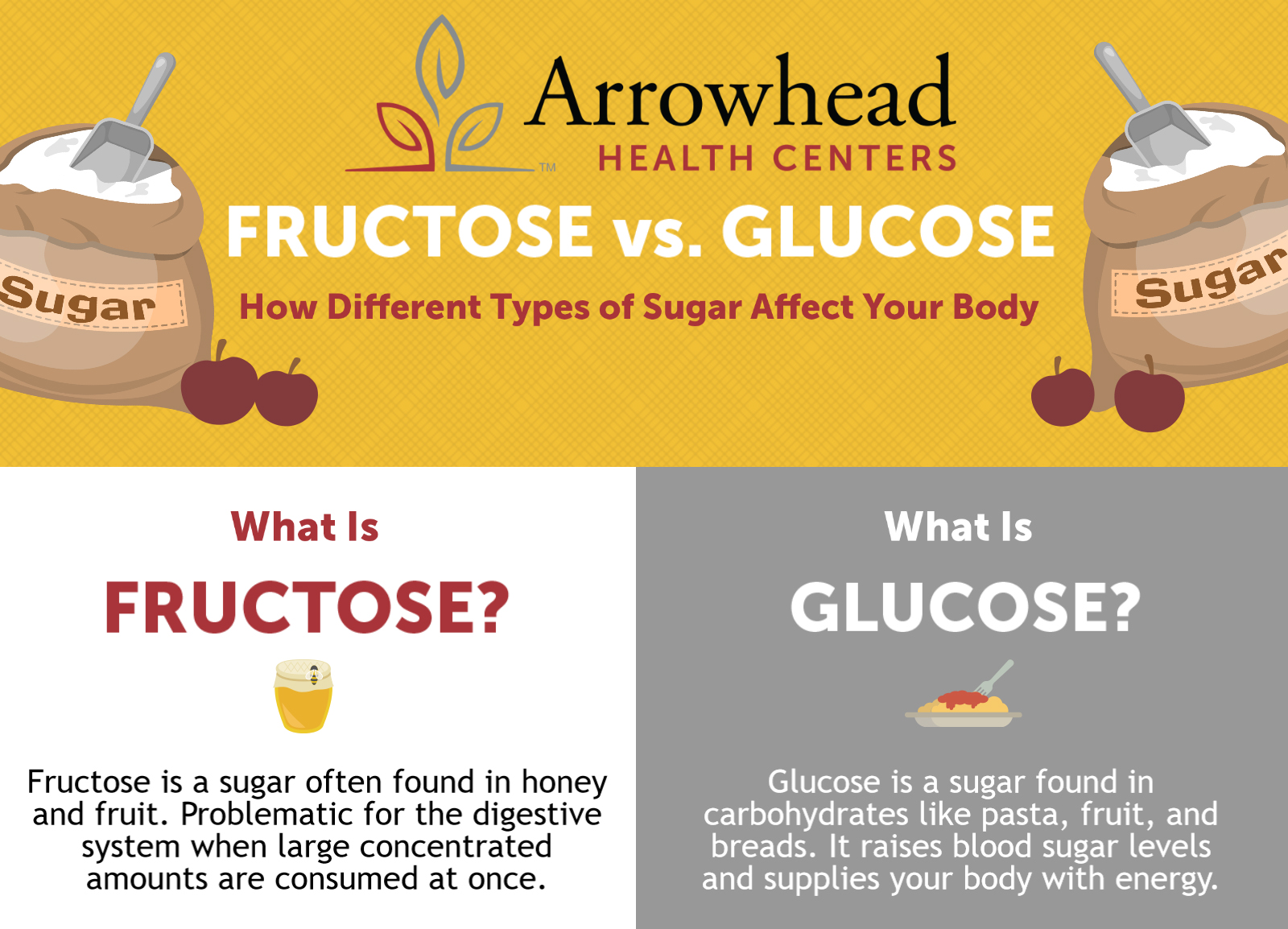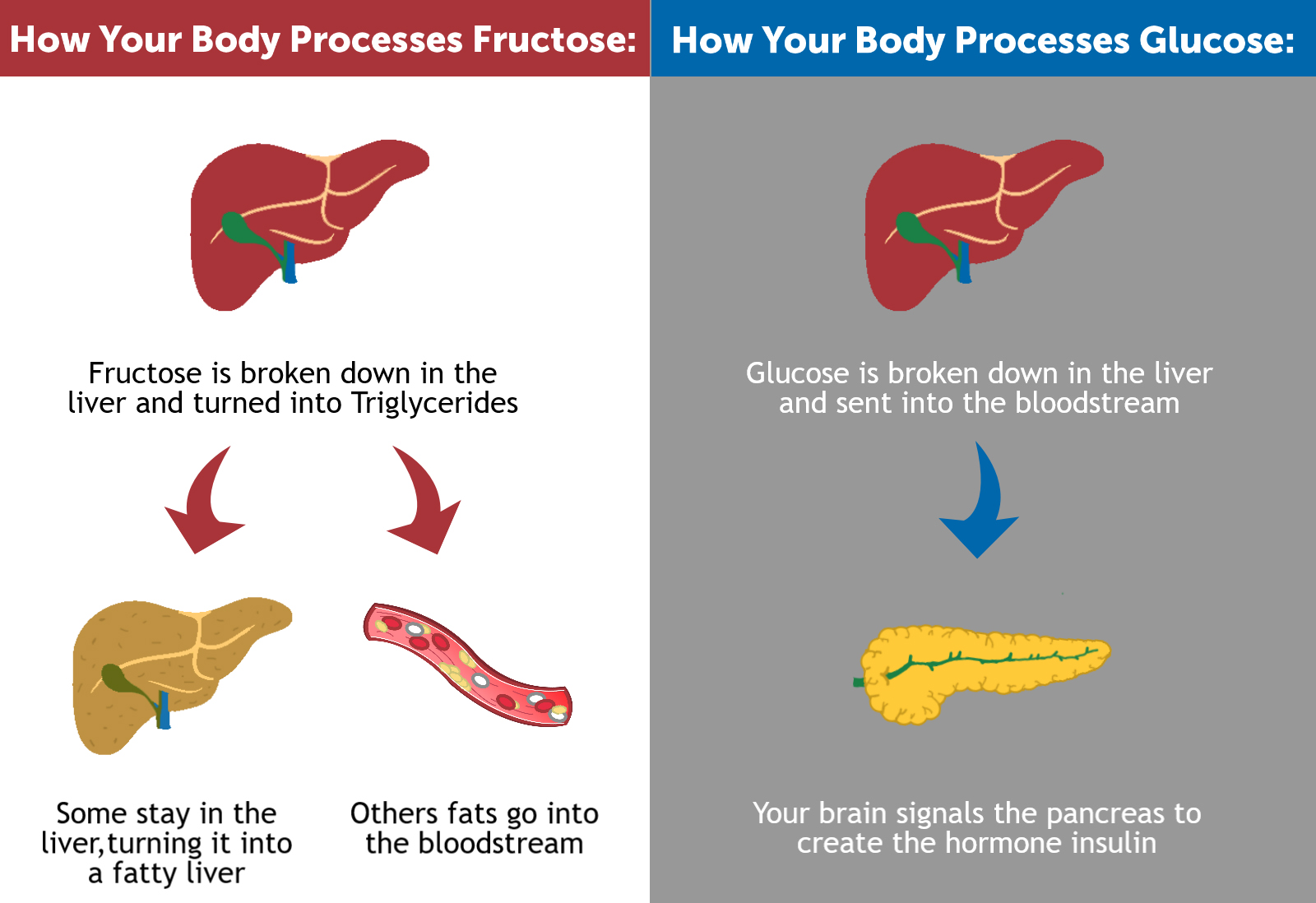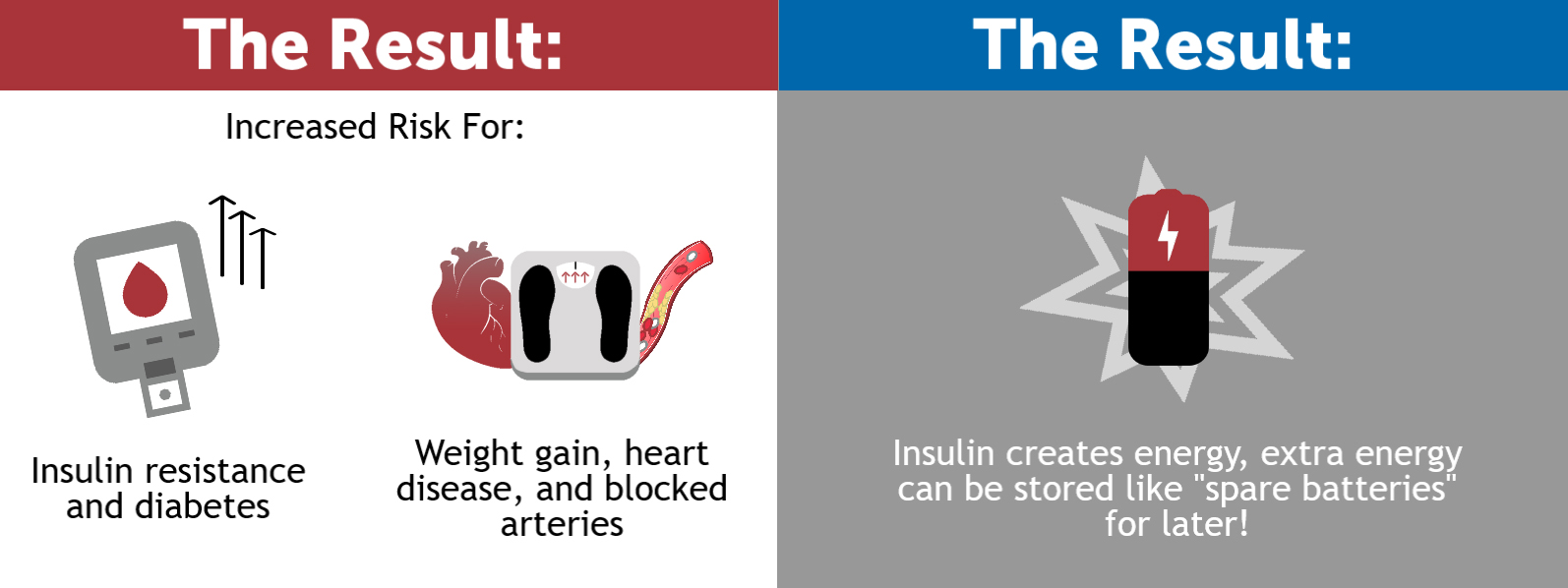 “If you removed all of the items that contained sugar from the supermarket, only 20% of the items would remain!” documentary filmmaker Damon Gameau. That number is unreal when you think about all of the self-proclaimed healthy items lining the shelves. But is sugar really that bad for you? Come along as we answer the question, what does sugar do to the body?
“If you removed all of the items that contained sugar from the supermarket, only 20% of the items would remain!” documentary filmmaker Damon Gameau. That number is unreal when you think about all of the self-proclaimed healthy items lining the shelves. But is sugar really that bad for you? Come along as we answer the question, what does sugar do to the body?
What does Sugar do to the Body? First, a little about Glucose, Lactose, Sucrose
Before we answer the question, what does sugar do to the body, let’s talk about the different types of sugar: glucose, lactose, and sucrose. Glucose is a simple form of sugar that is primarily used for energy in the body. Lactose, found in items like cheese, milk, yogurt, is a more complex sugar made up of glucose and galactose. Sucrose is also a complex sugar made of 50% glucose and 50% fructose. We will spend our time discussing fructose as it has the most detrimental effects on the body. Fructose is a naturally occurring sugar in foods like fruit and honey. However, we have figured out how to extract fructose and add it to a large majority of everyday foods items. Things like yogurt, spaghetti sauce, granola bars, cereals, condiments, sports drinks, and dried fruits can contain high amounts of sweetener.
What does this mean for your body? Well, let’s take a look at some simplified science:
Fructose is a naturally occurring sugar in foods like fruit and honey. However, we have figured out how to extract fructose and add it to a large majority of everyday foods items. Things like yogurt, spaghetti sauce, granola bars, cereals, condiments, sports drinks, and dried fruits can contain high amounts of sweetener.
What does this mean for your body? Well, let’s take a look at some simplified science:
What does sugar do when it enters the body:
When sugar enters the body it splits into two parts: fructose and glucose. These elements make their way to the liver, where, once inside, must be dealt quickly. Glucose, which is found is a wide arrange of naturally occurring foods items, it is used immediately for energy or stored for later use much like a spare battery. Fructose, on the other hand, naturally occurs in fruits and honey, which suggests that the body was designed to handle it in small doses. Therefore the liver does not have a system to deal with the fructose mainly because this type of sugar was so rare before the industrialization of food. So, since the fructose cannot stay in the blood stream and if all the “spare batteries” are full, the fructose is rapidly turned into fat called triglycerides.
Some of that fat will stay in the liver while the rest is sent out into the bloodstream.
The excess triglycerides in the liver lead to a fatty liver and increases the risk for insulin resistance, and diabetes. Likewise, the overabundance of fat in the blood can lead to weight gain, block arteries, and heart disease.
Fructose, on the other hand, naturally occurs in fruits and honey, which suggests that the body was designed to handle it in small doses. Therefore the liver does not have a system to deal with the fructose mainly because this type of sugar was so rare before the industrialization of food. So, since the fructose cannot stay in the blood stream and if all the “spare batteries” are full, the fructose is rapidly turned into fat called triglycerides.
Some of that fat will stay in the liver while the rest is sent out into the bloodstream.
The excess triglycerides in the liver lead to a fatty liver and increases the risk for insulin resistance, and diabetes. Likewise, the overabundance of fat in the blood can lead to weight gain, block arteries, and heart disease.

What does sugar do to the brain?
The liver is not alone in its unusual response to fructose; the brain has an unnerving reaction as well. Here is how the brain works when it comes into contact with fructose:- When we see a cue, an ice cream cone, for example, our brains releases dopamine – a hormone that gives a burst of quick energy and causes good feelings to flow through the body. This causes a spike in the blood sugar which can yield a temporary sense of alertness and focus. The fructose is used quickly though and so causes the blood sugar levels to decrease which causes a crash often manifested as lethargy.
- We eat the sugary item which releases opioids. These opioids cause cravings which make it hard to resist the sweet treat in front of you. This is not unlike addictions to nicotine or drugs.
- Fructose also impedes the appetite centers of the brain meaning you feel hungry more often and full less quickly than you should.
- The bottom line is that sugar causes the brain to malfunction, sending signals to constantly dump hormones into your body creating insatiable cravings for more and more sugar. Simply put: the more you eat sugar you eat, the more sugar you want.
Negative effects of eating sugar

Eating too much sugar at once can cause a crash and make you feel exhausted.
- weight gain particularly around the belly
- unhealthy skin
- mood swings
- slow, lethargic, unmotivated
- fuzzy or cloudy mind
- obesity
- insulin resistance
- type 2 diabetes
- fatty liver
- clogged arteries
- heart malfunctions
- increase uric acid levels
Sugary Alias
The average adult eats 22 teaspoons of sugar each day; the average child eats 32! That is exorbitant compared to the recommended 9 teaspoons for men and 7 teaspoons for women. How do we consume so much? Well partly, sugar is added to a long list of everyday foods, many of which are disguised by these pseudonyms:- turbinado
- fruit juice concentrate
- evaporated cane juice
- cane juice crystals
- corn sugar
- high fructose corn syrup
- molasses
- organic coconut palm sugar
- agave
- and 52 more






Leave a Reply